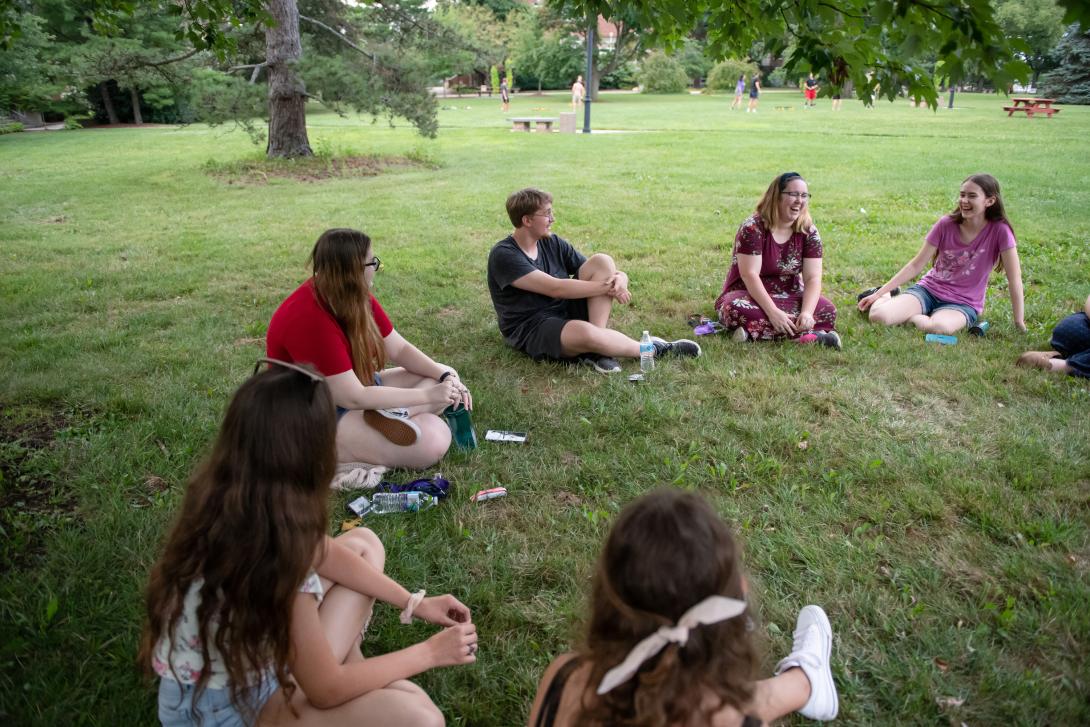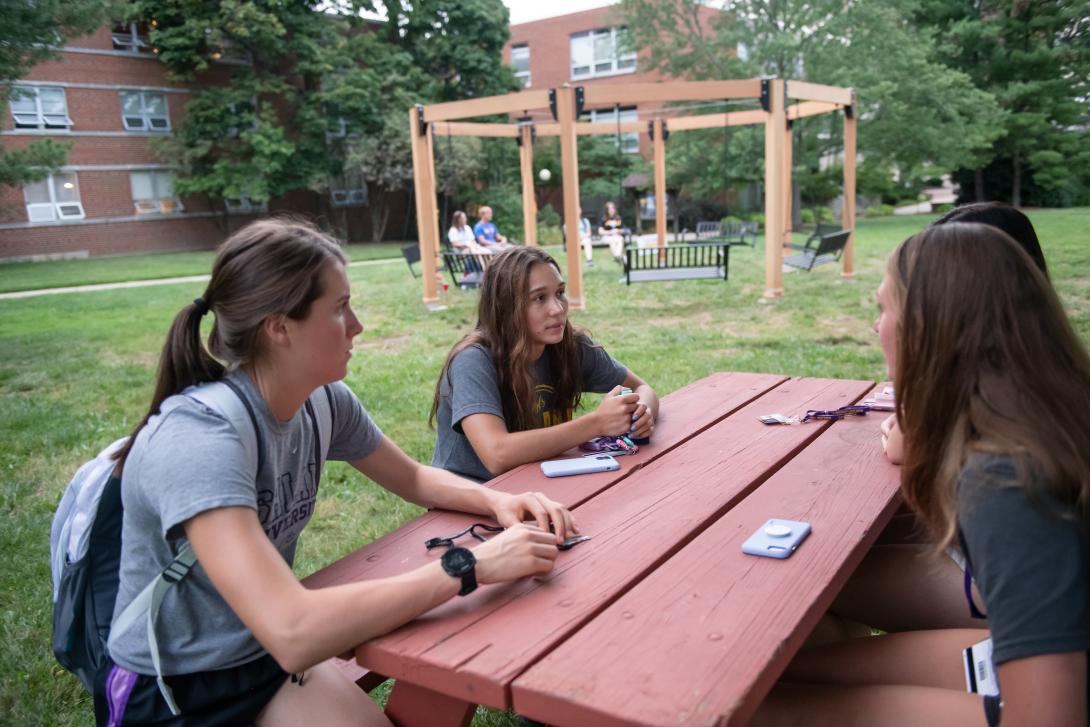Overview
The Honors Program is designed for academically motivated and accomplished undergraduate students. A member of the National Collegiate Honors Council, AU's Honors Program provides interdisciplinary experiences, an intellectual community dedicated to dialogue, as well as special projects and courses that challenge the mind. Intellectual stimulation and camaraderie within an Honors cohort can give you a more complete and rewarding college experience. The Honors Program will challenge you and make your applications to graduate schools and employers rise to the top.

Opportunities
Honors Program opportunities include:
- Honors Core courses centered on discussion and dialogue, with small class sizes
- Priority enrollment in all classes
- Peer mentoring for freshmen
- Optional Honors housing in Clayton Hall, featuring a private bathroom for every double occupancy room
- Limited number of scholarships available for incoming Honors Program students
- Study groups and lecture series for Honors students
- Honors social events
- Honors capstone project where you work closely with a faculty member on an in-depth original project related to your major
- Study abroad experiences have included the British Isles, Italy: The Grand Tour, the Irish Heritage Tour and the Grecian Odyssey Tour
Apply to Ashland University today! Once you have been admitted, you can apply to the Honors Program through your Admission Application Portal.

Honors Scholarships
All incoming students accepted into the Honors Program will be considered for an Honors scholarship (currently $1000 to $1500, and on top of any other scholarships awarded). Scholarship candidates will be interviewed by the Honors Director or a faculty member of the Honors Program Advisory committee.
Applying to the Honors Program
Once you’ve been admitted to Ashland University, you can apply to the Honors Program through your Admission Application Portal. There is no application deadline and decisions for admission to the Honors Program are made on a rolling basis. First consideration is given to students who meet these guidelines:
First-Year Students
- High school GPA of 3.5 or higher
- Minimum ACT composite score of 27 OR SAT score (combined critical reading and math) of 1280
- Completed application form with essay
- Interview with Honors Director
Transfer Students
- Overall university GPA of 3.5 or higher
- Letter of recommendation from college faculty member
- Completed application form with essay
- Interview with Honors Director
All incoming students accepted into the Honors Program will be considered for an Honors scholarship of $1,000 to $1,500, on top of any other scholarships awarded.
The application includes writing an essay of 400-500 words on one of these topics:
- If you could invite a real person (living or historical) or a fictional character to a dinner party, who would you invite and why?
- Describe a problem you've solved or a problem you'd like to solve. It can be an intellectual challenge, a research query, an ethical dilemma - anything of personal importance, no matter the scale. Explain its significance to you and what steps you took or could take to identify a solution.
- A hallmark of the Ashland University Honors Program is intellectual curiosity. Describe how you have demonstrated intellectual curiosity in the past – a time that you immersed yourself in a topic and went beyond the requirements of a specific assignment. What did you learn and what impact did it have on you?
- Creativity can be expressed in many ways. In lieu of an essay, you may submit a project that demonstrates your creativity in an area such as music, theatre, photography, visual arts, creative writing and literature, mathematics, science, history or dance. Although not required, you may wish to include a brief paragraph providing background information about your project.



